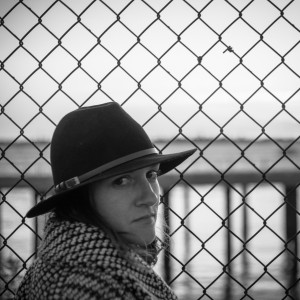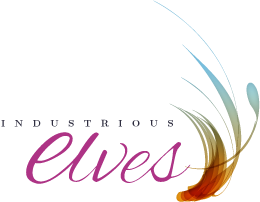 Every time you open the shutter, you let in the light of the world.
Every time you open the shutter, you let in the light of the world.
Emily Fay Calhoun on LinkedIn and IMDB
I was in grad school studying economics when I started volunteering for a radical and independent daily news show. I had never even entertained the idea of working in media production. Up to that point, I had dreamed of working abroad as a diplomat or humanitarian. But I had been listening to this show on the radio for a couple years and was deeply concerned about the influence of corporate media on journalism. So I showed up as a fan and volunteer. That soon turned into a paid part-time job in outreach and development. The following year, again without any career goal in mind, I took an internship doing research for a PBS documentary. That turned into a paid job assisting the producer. Although I completed my masters with honors and was encouraged to pursue a phD, I was no longer sure about my career path.
I moved to Berkeley where I spent two years researching and reporting on the correlation between Congressional campaign finance donations and legislative decision-making. Who was contributing to whose campaign and what did it buy, in terms of legislation? This was a happy medium between academia and journalism. I worked with very large datasets and learned about relational database and content management systems, web design, user experience, and infographics. I did research and wrote up my findings while the web people built visualizations of the results and the communications people sent out press releases and gave interviews. I went to conferences on government transparency, open data, data-based journalism and campaign finance reform.
The path I took over the ten years following that job was not a straight line. I moved back and forth between NY and CA. I worked on commercials, reality shows, web series, Hollywood features. I also worked in publishing, editing, research, and videography. To get by, I sold produce at a farmer’s market, clothes at a vintage shop, paintings and jewelry at street fairs. I made a short film. I worked at the State Library. I took breaks. I cycled along the Camino in Spain; I got lost in the Andes. I drove cross-country. Then I drove cross-country again. I suffered loss and lost years to grief. I had a baby.
In my last year in NY before moving back to CA, I had worked on a documentary for which I managed all the archival research, rights and clearances. This turned out to be a role that I’m well suited to and can do remotely, and it has been my focus ever since. Being an archival producer requires familiarity in some non-obvious stuff that I happen to be familiar with: news media history, A/V history and preservation, digital forensics, the basic infrastructure of the internet, database design and management, and intellectual property law. It also helps to know how NLEs work and how to use one. I use Premiere but have dabbled in Final Cut and Avid.
My background in the social sciences is probably the single-most important asset I bring to the job. The Great War, the Great Depression, the Vietnam war, the Iraq war, Jihadism and terror, the crisis in Venezuela, women’s suffrage, Hurricane Maria, the Puerto Rican diaspora, the history of NYC, the history of San Francisco…these are some of the subject areas I have delved into in search of the perfect image to support a story. Every job is a history lesson, and this is what I value the most about documentary as a viewer as well.
I enjoy my work tremendously. Documentaries have a role to play not only in entertaining the consumer but also in educating the citizen and thereby strengthening our democracy. I take my work seriously and consider it part of my responsibility to represent to producers contextually fair and accurate archival imagery. I enjoy the constraints and challenges of finding preserved images from the pre-internet world. People take it for granted today that every corner of every block is photographed and preserved on the internet. Each era of technology from the first still camera to the smart phone requires a different research strategy and creative problem-solving.
As much as I love working with historic imagery, it limits the types of projects I work on. After many years of supporting producers and editors, I think it would be fun to expand into one or both of those roles. I learn from every producer and editor I work with – what to do and what not to do. If the opportunity arose, I would definitely give it a shot.
Some of the projects I have worked on are here.
